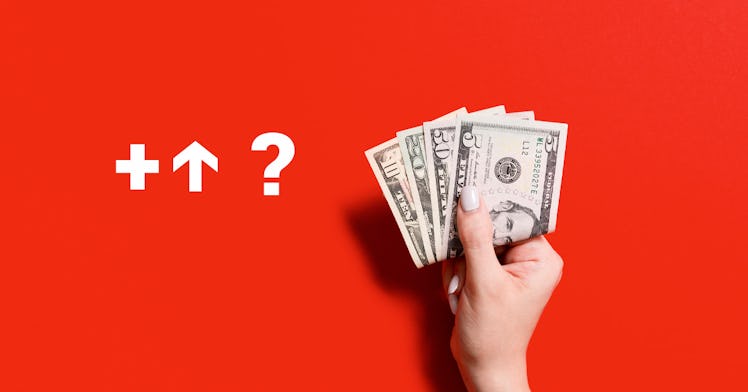What’s A ‘Plus-Up’ Payment? Extra Money from the IRS, Explained
Here's what to know about extra money from the IRS that could be coming to you.

As of Thursday, April 1st, the IRS had issued 130 million stimulus checks to those who qualify for the payments. But, according to the IRS, they have also started issuing what are referred to as “plus-up” payments — a supplemental payment to those who have qualified for stimulus checks in the past.
According to Newsweek, these plus-up payments are primarily being paid out to people who have already filed their tax returns for the 2020 year. Here’s what to know about what a plus-up payment is, who is getting extra money from the IRS, and what to do if you qualify.
What’s A Plus-Up Payment?
A plus-up payment is supplemental stimulus money — an addition to the $1,400 stimulus checks — that are largely going to people who already filed their taxes for the year of 2020. Additionally, if you didn’t receive the full amount of your stimulus payment that you qualified for, you could also receive a plus-up payment without having to file any forms in order to receive it.
Also, according to CNET, if you don’t receive any federal benefits but didn’t get a direct deposit by March 24, you will most likely receive a stimulus payment in the mail. In that case, if anything has changed from 2019 to 2020, you could receive a direct deposit from the IRS based on your adjusted income or any major life changes explained above, who have had their 2020 taxes processed. The IRS will be sending out plus-up ‘payments’ on a weekly basis as the horror of tax season and stimulus payment season collide.
Who Qualifies for a Plus-Up Payment?
Anyone who had their incomes diminished between the 2019 tax season and the 2020 tax season (which is likely the case for many millions of Americans) and filed their tax returns at the beginning of March could receive a plus-up payment. People who had a baby in 2020 or who otherwise had new dependents to claim on their tax return could also receive a plus-up payment. Also, if the IRS owes you money from your most recent tax return, you could receive a plus-up payment, and if you received less than the full amount of the stimulus you are owed, you could receive one.
What Do You Need to Do If You Think You Qualify?
As of right now, if you didn’t make any errors on your tax return, nothing, except to keep a look at your bank account, as these payments are reportedly largely coming in the direct deposit form. If you did make an error on your tax return form, there may be recourse for you from the IRS, but nothing has been announced.
If you are still in limbo waiting for a stimulus payment that the IRS told you would arrive, make sure to look at the Get My Payment Tool, and the Payment Trace Tool to track your stimulus payments.
This article was originally published on